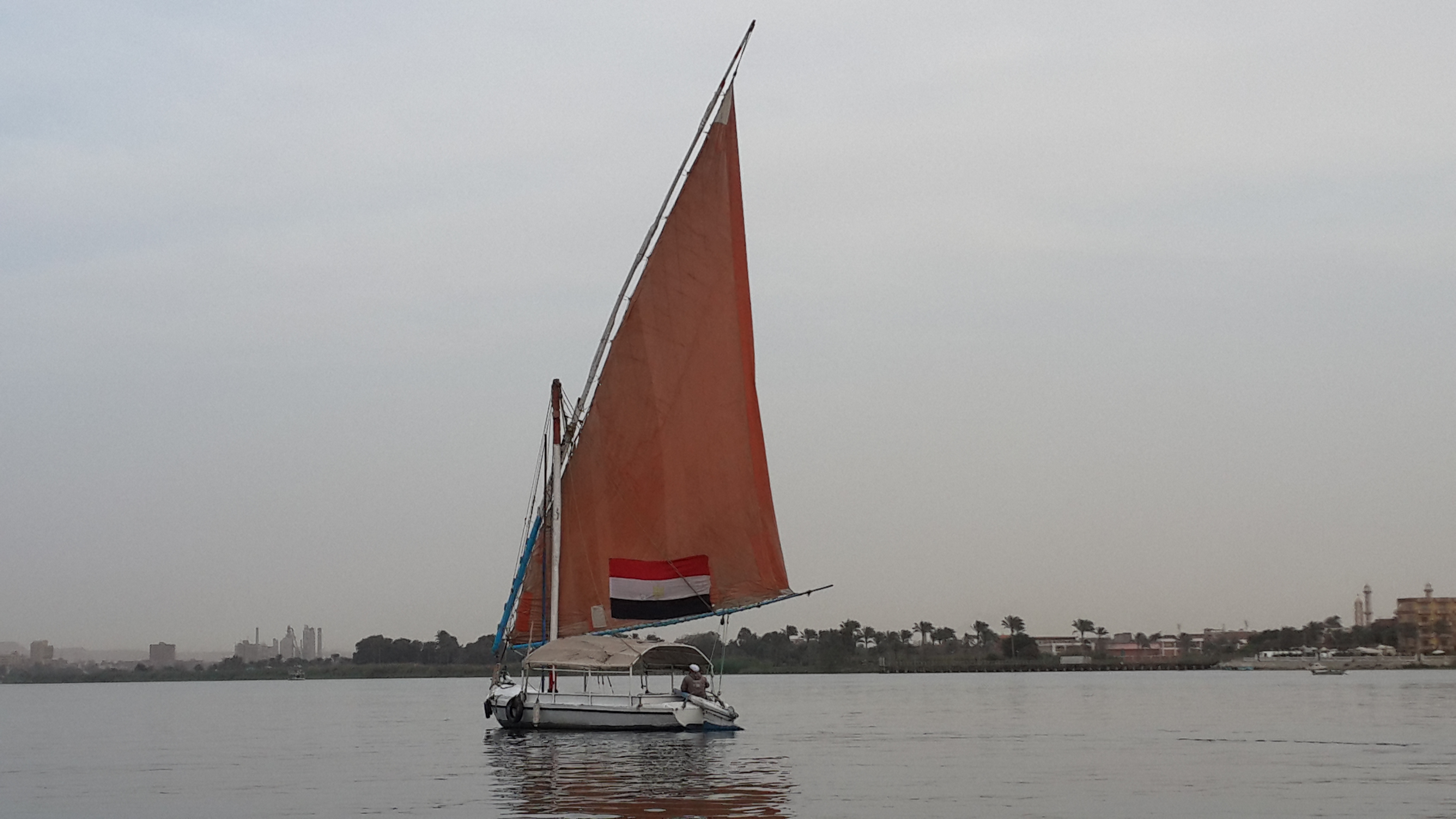
I am lucky enough to have been invited to the 2015 Palestinian Festival of Literature. Here is a despatch from days two and three.
On Sunday the improbably named Ray Dolphin gave us a crash course on the occupation at the headquarters of the United Nations Office for Humanitarian Affairs for the Occupied Palestinian Territories. The headquarters is a beautiful old building with a verdant garden in which there is a pagoda well-manicured borders. It is where Moshe Dayan and his Jordanian counterpart drew out the Green Line, so called because they used a green pen. Ray says that the table they used to do this wasn’t level, causing inaccuracies of inches on the map which translated into kilometres in reality.
Ray bombarded us with a litany of depressing facts. He told us that almost a year after Israel destroyed 12,000 homes in Gaza during its war on the Strip there has been almost no reconstruction. Some families have simply returned to the ruins of their homes and pitched tents. In October 2014 countries loudly pledged millions for the reconstruction of Gaza during a donor conference in Cairo. Not much of it seems to have translated into anything of substance. And in any case even if did Israel hasn’t let construction materials into the Strip since 2007 because, it says, Hamas would use it to build bunkers. The tunnels between Egypt and Gaza on which the latter’s economy depended are now all closed, as is the crossing between the two countries thanks to a certain busy ex-field marshall and his combover.
The occupied West Bank meanwhile houses 556,000 settlers (20% of the Palestinian population), 150 settlements and 100 outposts. The difference between a settlement and an outpost is that a settlement is authorised by the Israeli government while an outpost isn’t, but the government is perhaps too busy to object with any force because it is preoccupied with furnishing said “illegal” outpost with roads, water and electricity supplies etc.
Almost 43% of land in the West Bank is controlled by settlements. In 2014 there were 221 cases of settlers damaging Palestinian property and 110 cases of incidents involving settler violence that resulted in physical injury to Palestinian victims. There does of course exist a legal mechanism allowing Palestinians to report such crimes but who are you kidding. The result is that settlers routinely intimidate Palestinians and take over their land with virtual impunity.
The wall meanwhile continues to snake its way through the West Bank. It will be 700 kilometres long upon completion. Flipping through a powerpoint showing diagrams illustrating the various, cumulative, physical insults inflicted on the West Bank since 1967 Ray said the wall’s main effect will be on agriculture.
Are your eyes beginning to glaze over? Offences against agricultural aren’t very sexy, after all. But consider the example of the village of Jayyus that Ray told us about.
Most of Jayyus’ land and water wells are on the other side of the wall from the village. This means that farmers need a special permit to access their land as the area has been deemed a military zone. Many applications by farmers are refused for security reasons. Farmers must also prove a connection to the land, something to show that they own it. This is a problem because most of the West Bank has not been formally surveyed (surveying started under the British Mandate and continued under Jordanian rule but Israel suspended it all in 1967). In addition you also have to have a minimum amount of land. The result of all this is that less than half of West Bank farmers obtain permits to access their own land.
If you’re a farmer that does obtain a permit you must engage in a farce in order to tend to your land.
You wait at one of the electronic gates controlled by the military until army soldiers show up. You are let through and locked in until midday when the gate is again opened. In the early evening the army returns and closes the gate for the final time that day. Farmers are not allowed to stay overnight on their land meaning that you have a maximum of 10 hours each day to cultivate it. Also, you can’t irrigate your crops in the evening when it makes most sense to do so. Satellite imagery shows that lots of land has been abandoned. Wheat is often grown instead of other crops, because it needs less attention. But it makes farmers less money.
Note also that of these 85 electronic gates, only nine open on a daily basis; the majority of them only open during the six weeks of the olive harvest in October of each year.
Some other facts about the West Bank:
- 18% of the occupied West Bank is a military area. Palestinians are not allowed to enter these areas without permission.
- 10% of the occupied West Bank is a nature reserve. Palestinians are not allowed to cultivate these areas or graze animals there.
- 60% of the occupied West Bank is controlled by Israel, which means that virtually every aspect of a Palestinian’s life is mapped out by Israeli diktat.
- Between January and November 2014 only one application by a Palestinian to construct something on territory in the West Bank controlled by Israel was approved. One. You will recall that there are a combined total of 250 illegal settlements and outposts whose inhabitants build and construct freely.
Things get truly mental in East Jerusalem, which is governed by its own nightmarish legal framework.
Palestinians in East Jerusalem do not have Israeli citizenship. They have permanent residence. What this means is a separate, blue, ID card which allows Palestinians to live inside Israel and Jerusalem, but not inside the West Bank. Live abroad as a blue card holder for more than seven years, or acquire citizenship from another country, and you automatically lose your residency. This has obvious implications for marriage, and for the children of unions between Palestinians from the West Bank and East Jerusalem because Palestinians from the West Bank need a special permit to enter East Jerusalem (incidentally if you obtain such a permit you cannot enter East Jerusalem with your car ?????). The result is that there are 4,000 unregistered children in East Jerusalem who cannot go to municipal schools.
All this can seem a bit remote when you just read it. But to occupy is to possess, to fill up space or time with a presence, to dwell inside something, to contain it from within and without. There is a brutal physicality about it. In Egypt when Cairo’s authorities wanted to shut down protesters they built giant, disfiguring walls of huge blocks in the centre of the capital that reshaped the way that traffic moves and blocked the city’s arteries. The walls were an aberration, monuments to the regime’s failure to control the people through popular approval, through dialogue, and an admission that it has no interest in winning this approval.

It is the same story in Israel. At the Qalandia Checkpoint Palestinians from occupied Ramallah wishing to enter occupied East Jerusalem queue up for hours underneath hulking watchtowers surrounded by shit and burnt rubbish and resolute graffiti and go through a turnstile reminiscent of the machinery used to control cattle during the process of inoculating them.


When we went through there were two young female soldiers manning the checkpoint, which was empty. One was lying on her flak jacket on the floor, apparently asleep until she jumped up to look at the x-ray machine monitor. Another was chatting on Whatsapp. People crossing the checkpoint must hold their document up to the glass for inspection. If the soldier requires a closer look the traveller must put the document through a tiny slit in the counter.


I struggled to put my passport through so narrow and cumbersome is this slit and was once again struck by how separated we were, the soldier and me, despite our physical proximity. Which is the point. When dealing with Palestinians Israel puts the gloves on in every sense of the word.
Ray took us to Sheikh Jarrah, an area of East Jerusalem. The street is home to Palestinian refugees who fled Haifa in 1948 and were re-homed here by UNWRA in 1956. The Council of Sephardic Jewry claims right to the area on the basis of an ancient Ottoman document. In August 2009 the Israeli police evicted the residents of two homes and literally threw them into the street. Within half an hour settlers had moved in to the houses. In the el-Kurd home on the same street a Palestinian family lives at the back of the house while settlers have occupied an extension built on the front of the house which a court has deemed illegal. You can watch the very distressing video of the men taking over the extension here.
On the day we were there the street was quiet. An elderly man drew up in his car, parked it, took his shopping out, unlocked his front gate, went inside. A girl played in the street. And then there were the houses occupied by settlers. That sudden violence again, the street’s symmetry interrupted by their chaos; makeshift structures erected on the balcony covered in bits of fabric and cardboard, a sofa cushion strewn on some unidentifiable makeshift structure, the visual assault of the graffiti, the jumble of it all. And above all, that separation, that deliberately pronounced other-ness, the knife in the fork compartment.

In Hebron the excellent Sami from the Hebron Rehabilitation Committee commented that Israel likes to dominate with its architecture. You will have probably heard of Hebron, the West Bank city where the settlers throw shit out of their windows at Palestinians and Palestinians have to use ladders to enter their homes through windows rather than the front door because the Israeli army has sealed it shut.
In Arabic Hebron is called al-Khalil which means bosom friend. It is so named because of its association with Abraham, who was known as khalil el rahman, or beloved of God.
Khelwa, which comes from the same root as al-Khalil means to spend time with a dear friend. The nomenclature has a dark irony, because Hebron sums up the occupation, of two peoples in close proximity who are linked by mutual contempt rather than love. In 1968 Rabbi Moshe Levinger and a group of Israelis pretended to be Swiss tourists in order to rent rooms in a main hotel in Hebron. They then refused to leave. They were moved to what would eventually become the settlement of Kiryat Arba in east Hebron. Since then four other settlements have been established, one in the building that formerly housed a Palestinian boys school. The settlements have sucked the life out of Hebron’s old city; there are 1829 shops in the area and only 200 are open.
The settlers are obviously motivated by the idea that they are resurrecting a Jewish claim to the city, and as usual the Israeli state supports them in this project. 2,000 soldiers protect 400 settlers living among 40,000 Palestinians. Walk through the old city and you will encounter machine-gun carrying soldiers on patrol in the market’s not very busy alleyways. Above your heads in one street are Israeli flags and the netting that stops the rubbish that settlers throw out their windows from landing on people’s heads. The Beit Romano settlement, the one built over the school, is a monstrous, imposing presence that towers over the streets below. It looks like a government building, with its army watchtower.
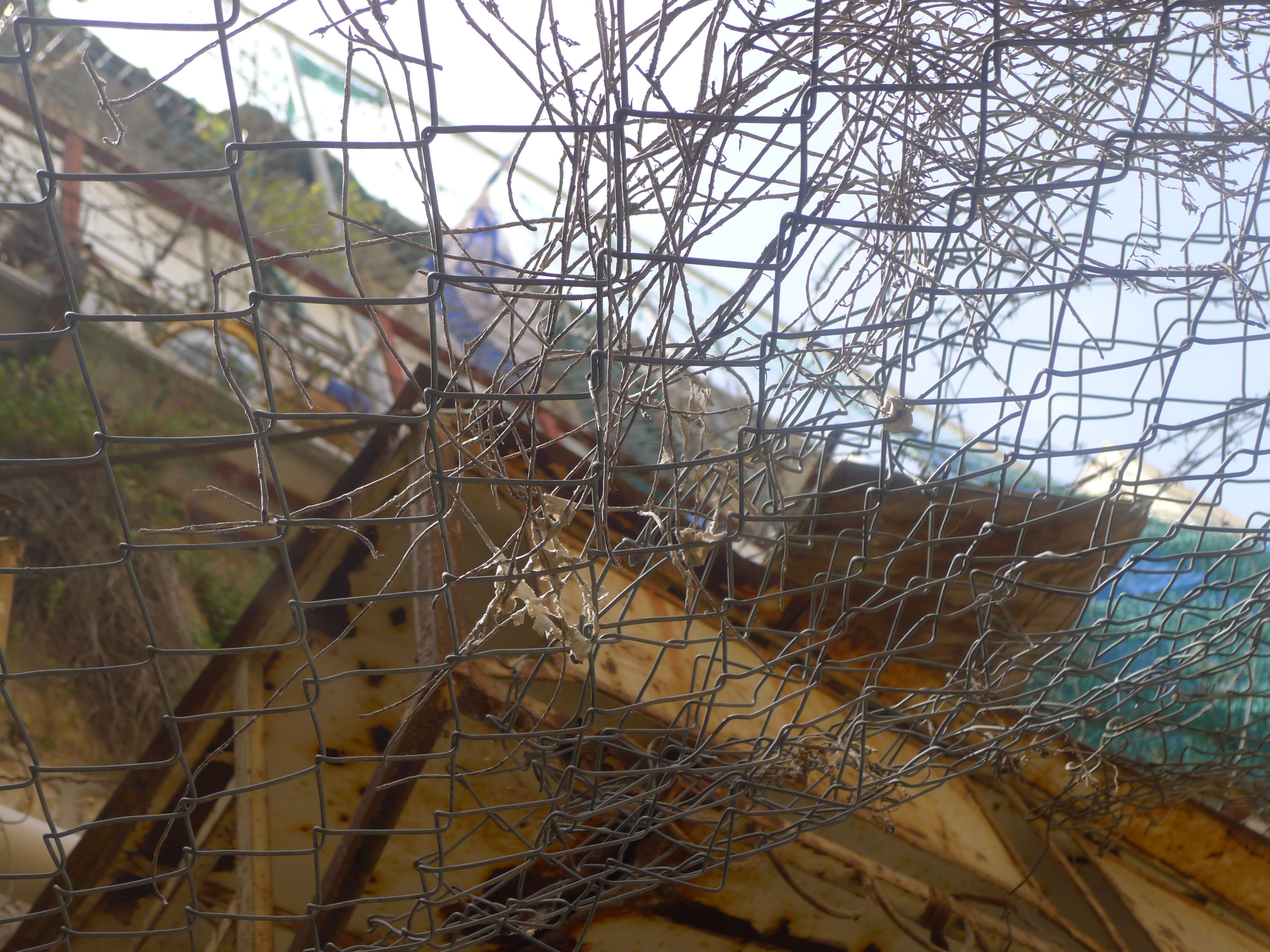
The establishment of a settlement in Hebron means the demise of anything immediately near it, like gangrene spreading to surrounding cells. Rooms are deserted, windows boarded up. In addition to the permanent edifices, makeshift barriers of coiled barbed wire and bits of detritus stud entrances to streets leading to settlements. And then there is the gold market, entirely shut down by military order in 2000. Shop owners were not given any warning before the closure and had to leave behind their wares, which were subsequently looted. Since the street is directly under a watchtower Sami suggested that the only conclusion that can be drawn from this is that it happened under the army’s eyes and was certainly not carried out by Palestinians.


I just know that some wit possibly called Samer will comment on the posterior on the right, so I’ll do it first. There is a bottom.
The occupation goes full throttle on Shohoda Street. This is accessed via a security checkpoint overlooked by a watchtower. The shops on this street are all empty; it is a ghost town. Palestinians are allowed to walk for about 800 metres on this street before they must turn right off it or risk arrest or worse, because this is where the settlement starts. Once, in another part of the town with a similar restrictive policy, a 6-year-old Palestinian boy carrying a box was shot dead for failing to stop when a soldier shouted at him to do so. The problem was that he was deaf.

The Gold Market
At the end of Shohoda Street, underneath the Ibrahimi Mosque which sits on an elevation above it there is a Jewish guest shop (also a settlement) that sells religious trinkets whose WiFI Sami told us was once “kill the Arabs”. They’ve changed that now and the authorities have also allowed a couple of Palestinian-run souvenir shops to open opposite it, Sami says because a deserted tourist site gave tourists the wrong impression. Beyond the shops there is a small, well-cared for green with picnic benches and leafy trees under which a large group of soldiers reclined. Rob Stothard photographed a soldier praying at a picnic bench, the soldier gave him dirty looks. Jewish tourists, the women all with their heads covered staggered through the merciless heat towards the synagogue. One middle aged woman waved at the soldiers under the tree, uttered some words in Hebrew enthusiastically. The soldiers waved back languidly.
There is nothing else on this street now, just the settlers, the eerie shuttered shops and a few Palestinian families who have held out and refused to leave despite the fact that they are forced to access their homes using ladders. The place is reminiscent of a disused film set in its silence and stillness, an effect compounded by the stories settlers have spun in the from of posters describing Hebron’s distinctive Jewish character and history (to the exclusion of anything else). There is the usual shrillness about it all, the repeated mentioning of the Arabs and their terror and the turning inside out of the truth that is so characteristic of (and infuriating about) hasbara. Here’s an example of that.
The lies and propaganda are a part of the occupation’s architecture as much as the concrete and barbed wire, since not everyone can be contained in a tiny bit of land and physically controlled.
Leave the West Bank and enter Israel and there are no more army watchtowers, no more checkpoints, no more walls. You are surrounded by well laid out motorways and tasteful homes on top of spectacular rolling hills. In Haifa the sea laps at the shore while people enjoy drinks in pavement cafes overlooked by the spectacular Bahai Gardens. Here, on first impression, the occupation ceases to exist and Gaza is on another planet. This oasis of pleasantness, where women can wear what they want and people can love who they want and live in nice homes and have access to good healthcare and beautiful beaches. But all of this is built on names wiped off the map, on memories of villages destroyed and people killed and who are still being killed, on families swept around the globe like leaves on the wind, who are forced to put on the coat of another nationality but will never be entirely comfortable in it, who if they don’t acquire another nationality live a precarious existence spent between airport detention rooms and police stations and refugee camps while a stranger enjoys a breeze on the seafront of Haifa without giving it a second thought.
Occupation fills space and time beyond walls and borders, beyond the farmer waiting for the military gate to open, beyond the worker who spends hours at the Qalandia checkpoint, beyond the schoolboy in Hebron arrested because he has dirty hands and therefore might have been throwing stones. To swallow Israeli propaganda about the endless terror and the homemade rockets justifying a bottomless pit of hell is to allow the occupation’s brutality to endure. To fail to challenge the Israeli state’s narrative while three hours away from you people live under military law and are humiliated, detained and worse is to allow the’s occupation’s brutality to endure.

 Follow
Follow

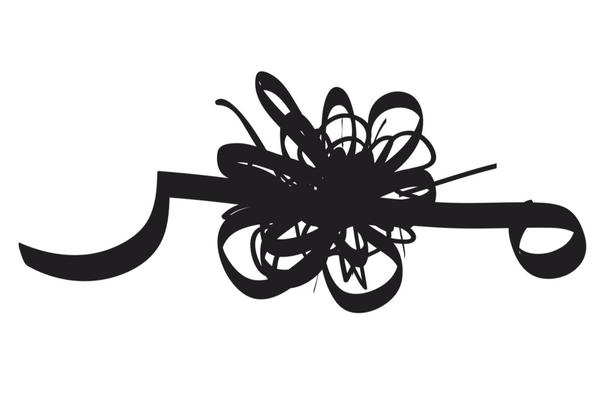













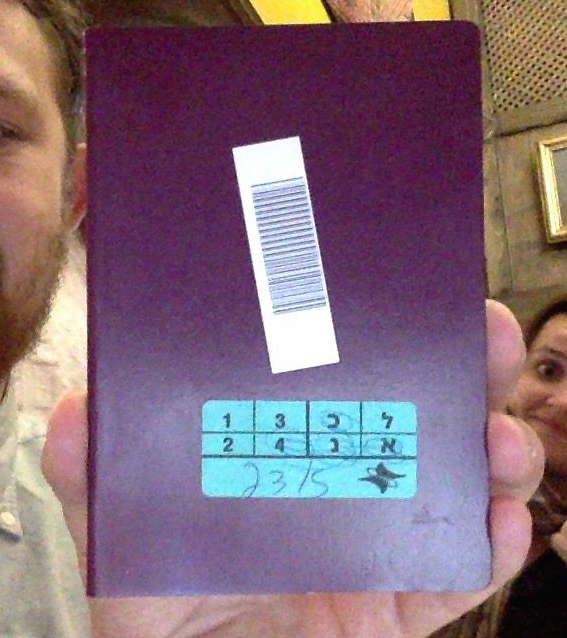




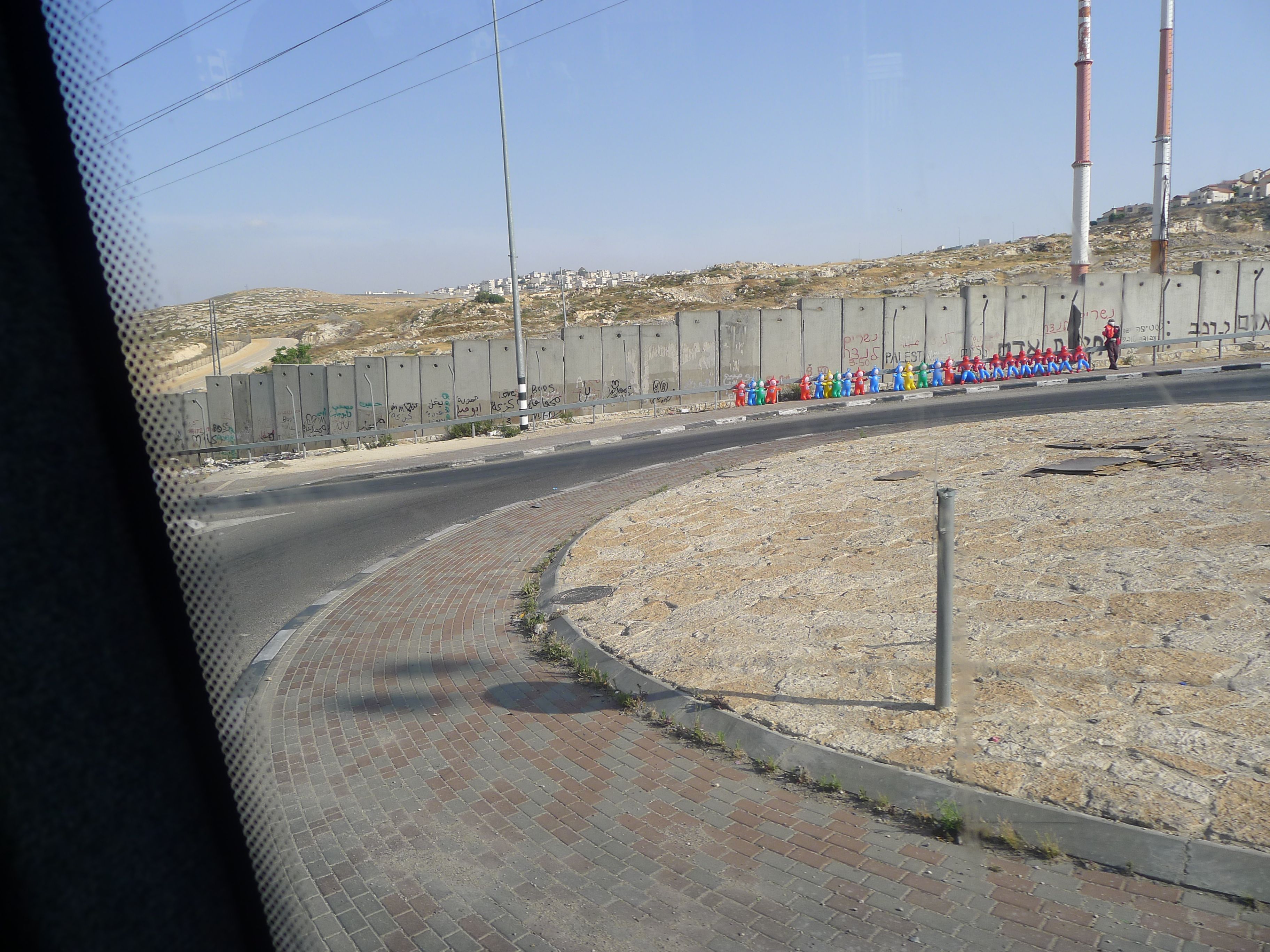











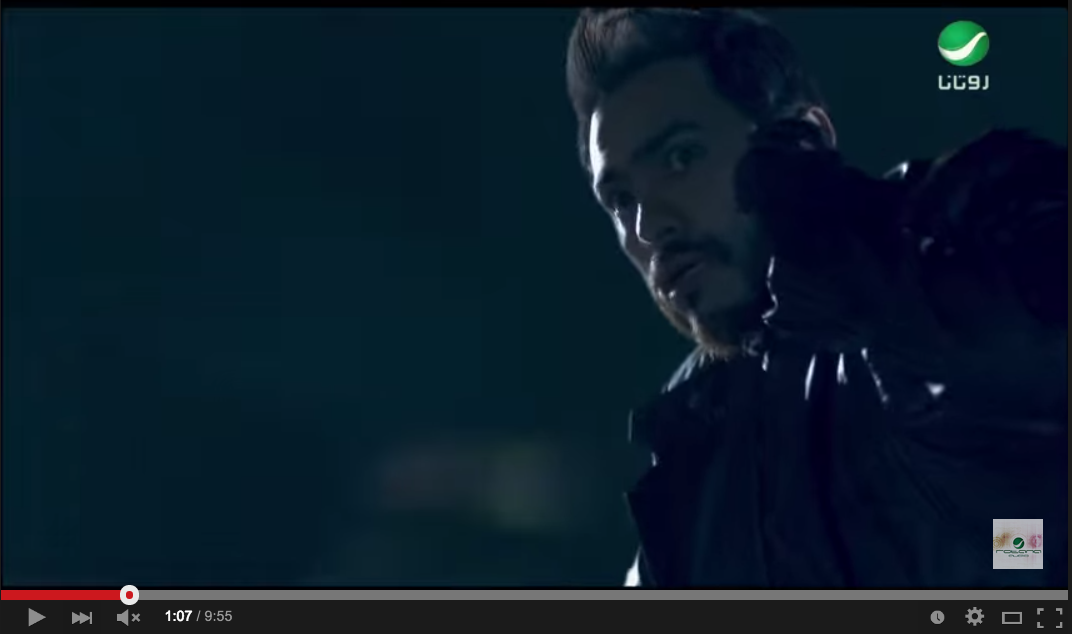
 2b. We are subjected to Tamer’s crotch and his ill fitting leather trousers.
2b. We are subjected to Tamer’s crotch and his ill fitting leather trousers. 2c. Interestingly, Tamer is able to cling on to his mobile phone despite just having been knocked off his motorcyle by a range rover while both were travelling at high speed. This is only right, since My Love did put in the effort of missed calling him 39 times.
2c. Interestingly, Tamer is able to cling on to his mobile phone despite just having been knocked off his motorcyle by a range rover while both were travelling at high speed. This is only right, since My Love did put in the effort of missed calling him 39 times.

 3b….the entire mouth budget was spent on My Love.
3b….the entire mouth budget was spent on My Love. 3c. My Love is confronted by her new reality; Tamer is comatose and his hair is a mess. We understand this because he has the standard Egyptian symbol of infirmity, the head injury sweatband, and also his eyes are closed and his hair is a mess.
3c. My Love is confronted by her new reality; Tamer is comatose and his hair is a mess. We understand this because he has the standard Egyptian symbol of infirmity, the head injury sweatband, and also his eyes are closed and his hair is a mess. 3d. In case any dull minded viewers haven’t understood the events of the previous scene the director considerately spells it out for them.
3d. In case any dull minded viewers haven’t understood the events of the previous scene the director considerately spells it out for them. 4. Tamer receives a double blow: 1. Never again will he receive almost 40 missed calls from My Love. 2 His mobile phone is still working and he is not.
4. Tamer receives a double blow: 1. Never again will he receive almost 40 missed calls from My Love. 2 His mobile phone is still working and he is not. 4a. A lingering shot on a blue-collar worker can only mean one thing: romance.
4a. A lingering shot on a blue-collar worker can only mean one thing: romance.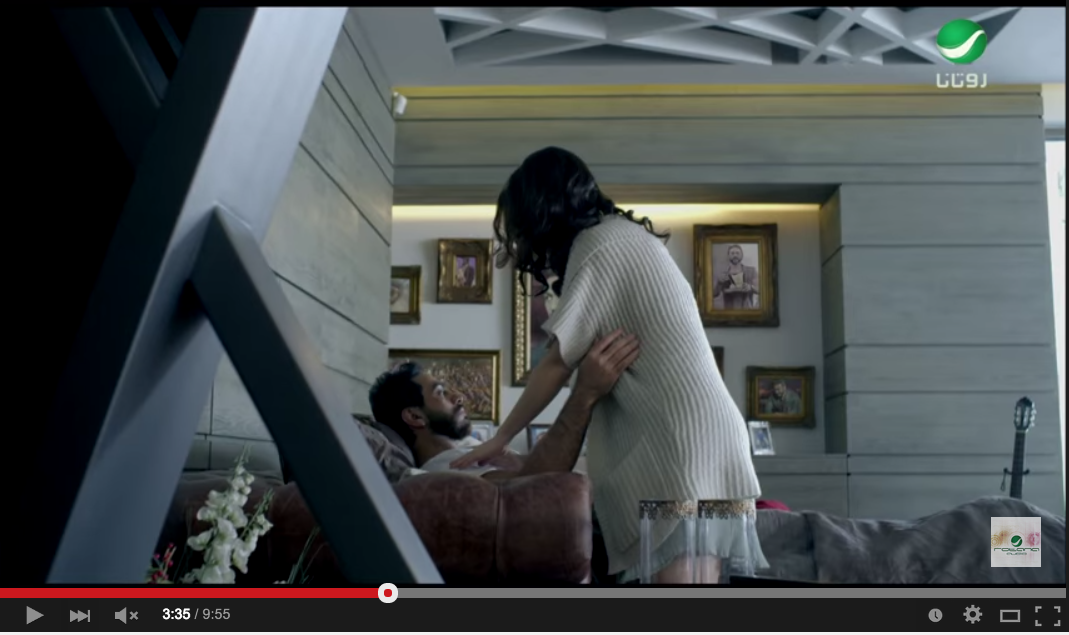 4b. Well that moved fast.
4b. Well that moved fast. 5. It is not for you to say whether your family is lovely or not you cunt.
5. It is not for you to say whether your family is lovely or not you cunt. 5a. Even while bedridden Tamer does not neglect his makeup.
5a. Even while bedridden Tamer does not neglect his makeup. 5b. Left to his own devices Tamer contemplates his Wall of Me.
5b. Left to his own devices Tamer contemplates his Wall of Me. 5c. Future My Love inspects Tamer’s Wall of Me.
5c. Future My Love inspects Tamer’s Wall of Me. 5d. Future My Love realises she’s saddled herself with a right wanker.
5d. Future My Love realises she’s saddled herself with a right wanker. 5e. Exhibit no. 1
5e. Exhibit no. 1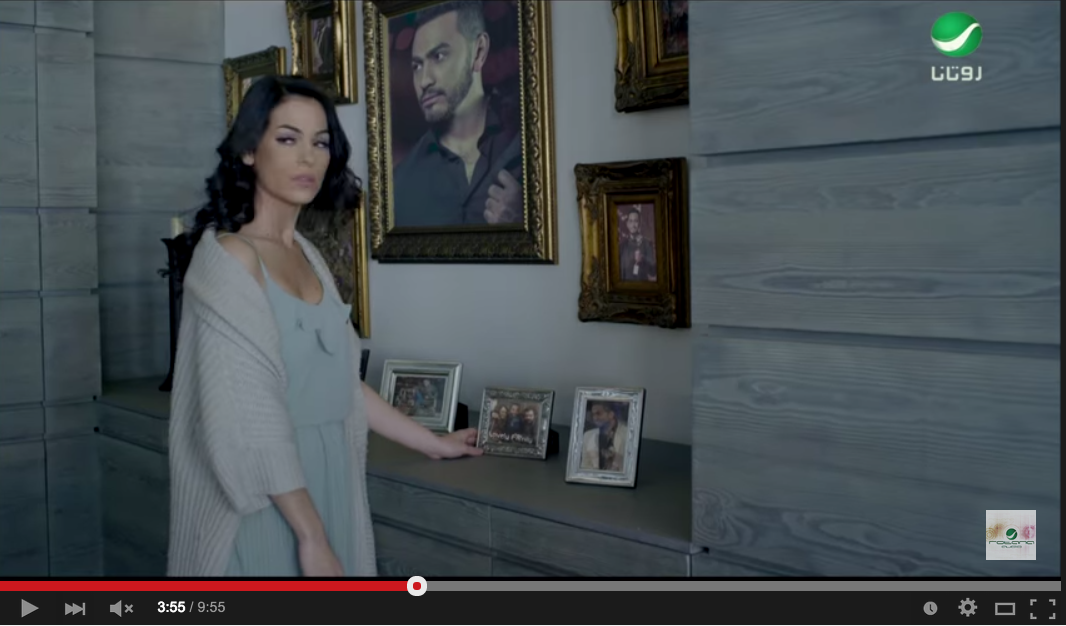 5f. “Tosser”
5f. “Tosser” 6. The phone rings; it’s Mahmoud. Tamer doesn’t answer it because Mahmoud has not fulfilled the mandatory number of missed calls. In Mahmoud’s case this is six.
6. The phone rings; it’s Mahmoud. Tamer doesn’t answer it because Mahmoud has not fulfilled the mandatory number of missed calls. In Mahmoud’s case this is six. 6a. Tamer goes into a reverie; a flashback about his superstar days when he was photographed by paparazzi with not very good cameras…
6a. Tamer goes into a reverie; a flashback about his superstar days when he was photographed by paparazzi with not very good cameras…
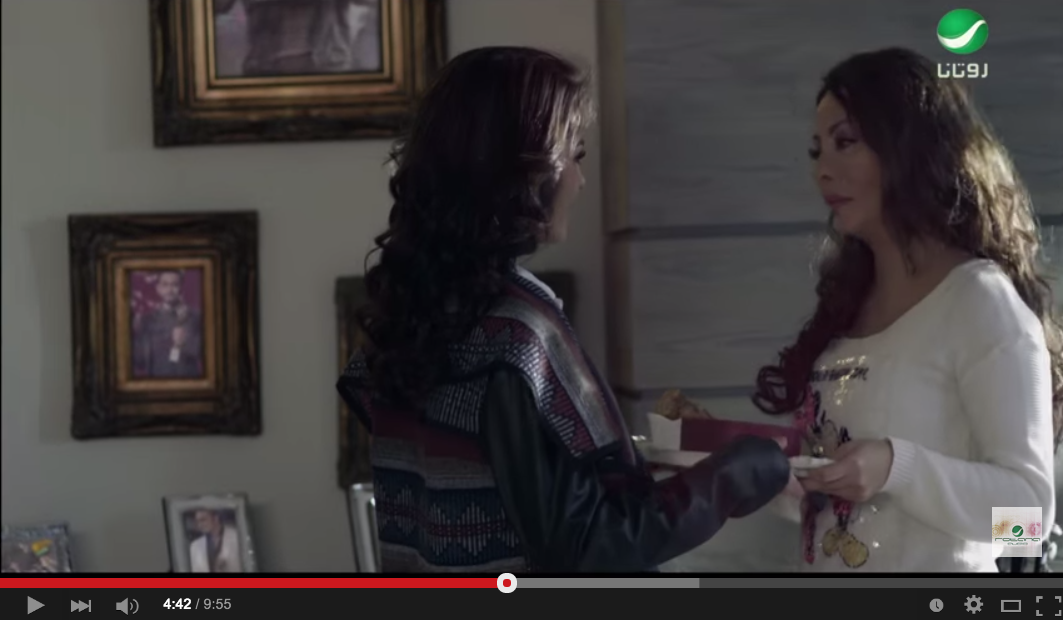 7. There is an unidentified woman hanging about in Tamer’s house helping Future My Love with menial tasks.
7. There is an unidentified woman hanging about in Tamer’s house helping Future My Love with menial tasks. 7a. Ignoring the first rule of caring for the paralysed which is not to strip them of agency Future My Love attempts to spoon feed Tamer who tells her she can shove it with his eyes.
7a. Ignoring the first rule of caring for the paralysed which is not to strip them of agency Future My Love attempts to spoon feed Tamer who tells her she can shove it with his eyes.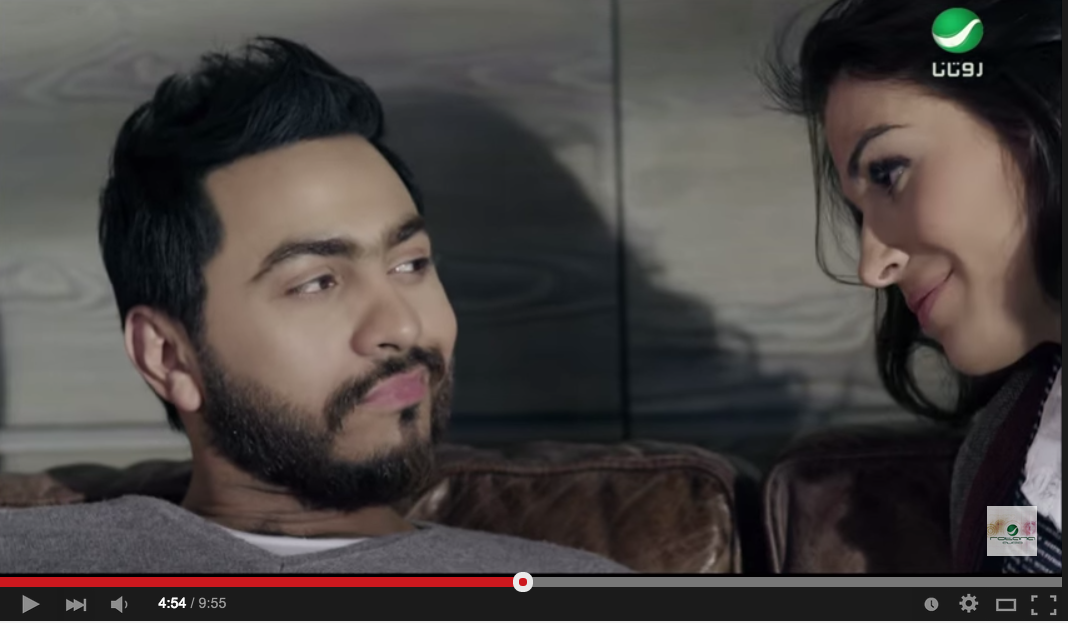 7b. But then oh alright hahahhahhhaa go on then stuff it in me gob luv.
7b. But then oh alright hahahhahhhaa go on then stuff it in me gob luv. 8. Future My Love takes Tamer out for a walk. Tamer is wearing his Tudor sports collar and sports cardigan because he correctly anticipated that he would be in the vicinity of youths playing basketball.
8. Future My Love takes Tamer out for a walk. Tamer is wearing his Tudor sports collar and sports cardigan because he correctly anticipated that he would be in the vicinity of youths playing basketball. 8a. Expert at balls.
8a. Expert at balls. 8b. The youths feel sorry for Tamer and let him play and score baskets.
8b. The youths feel sorry for Tamer and let him play and score baskets. 8c. Future My Love and Tamer share an embrace after he is allowed to score a basket. A single strand of hair comes loose so frazzled is he by their electric touch. It’s been an action-packed day.
8c. Future My Love and Tamer share an embrace after he is allowed to score a basket. A single strand of hair comes loose so frazzled is he by their electric touch. It’s been an action-packed day.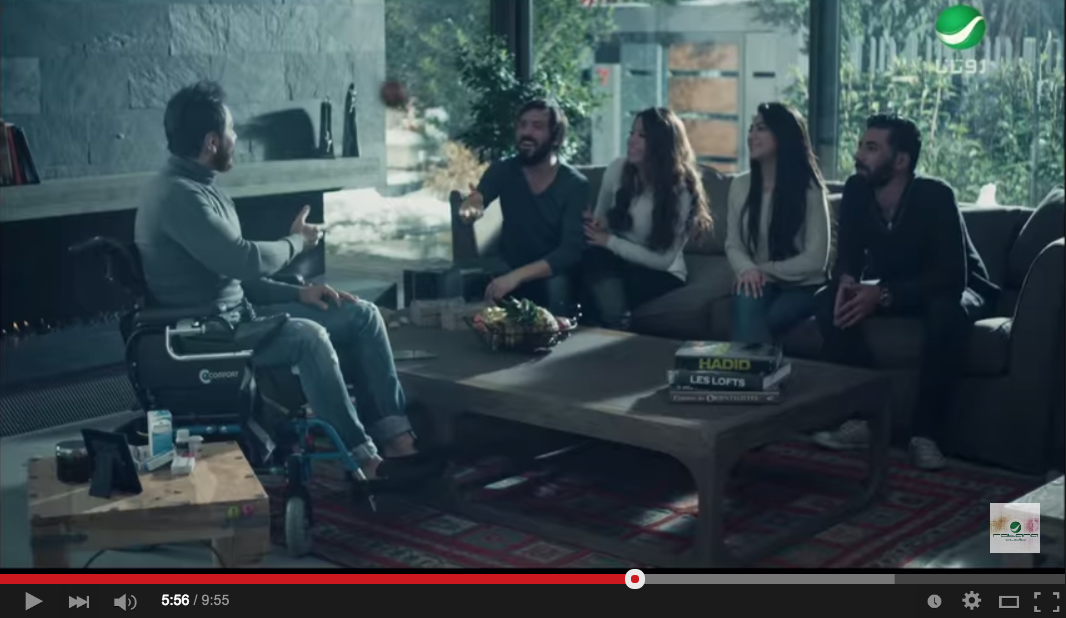 8d. Back at the homestead Tamer is celebrating his birthday with his friends. Only bearded men with V-necks and women with long dark hair are allowed into Tamer’s house. The friends celebrate with a traditional ritual of faeces throwing at the birthday boy.
8d. Back at the homestead Tamer is celebrating his birthday with his friends. Only bearded men with V-necks and women with long dark hair are allowed into Tamer’s house. The friends celebrate with a traditional ritual of faeces throwing at the birthday boy. 8e. Future My Love embarrasses Tamer while Andrea Pirlo standing in the background pretends not to notice. Notice that Tamer has got Future My Love wearing turtle necks for he has recruited her to his turtle neck cult.
8e. Future My Love embarrasses Tamer while Andrea Pirlo standing in the background pretends not to notice. Notice that Tamer has got Future My Love wearing turtle necks for he has recruited her to his turtle neck cult. 8f. Oh no. There is a wistful look in Tamer’s eyes and also he has on a sombre turtle neck which can only mean his mind is drifting.
8f. Oh no. There is a wistful look in Tamer’s eyes and also he has on a sombre turtle neck which can only mean his mind is drifting. 8g. Here we are inside Tamer’s head. He is remembering.
8g. Here we are inside Tamer’s head. He is remembering.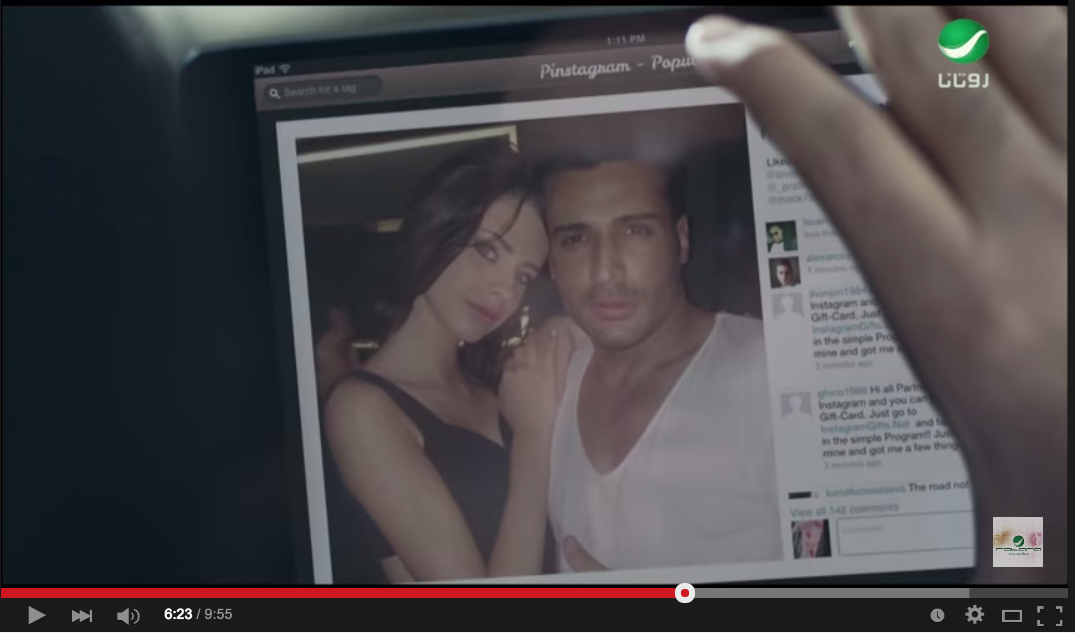 8h. What the fuck is Pinstagram. BOMBSHELL. My Love has taken up with a fittie who wears the absolute opposite of turtle necks. Her forehead has doubled in size also.
8h. What the fuck is Pinstagram. BOMBSHELL. My Love has taken up with a fittie who wears the absolute opposite of turtle necks. Her forehead has doubled in size also.
 8j. RIGHTEOUS FURY
8j. RIGHTEOUS FURY 8k. RAGE
8k. RAGE 8l. Future My Love comes rushing in, Tamer is having none of it. He needs to be alone.
8l. Future My Love comes rushing in, Tamer is having none of it. He needs to be alone. 8m. Future My Love has a flashback about all the sacrifices she has made for Tamer including the wearing of turtle necks and realises what a dick move that was and that she should have scarpered when she saw his Wall of Me. She correctly buggers off.
8m. Future My Love has a flashback about all the sacrifices she has made for Tamer including the wearing of turtle necks and realises what a dick move that was and that she should have scarpered when she saw his Wall of Me. She correctly buggers off. 8n. But only momentarily because women aren’t allowed to have sense in music videos.
8n. But only momentarily because women aren’t allowed to have sense in music videos. 8o. The couple embrace.
8o. The couple embrace.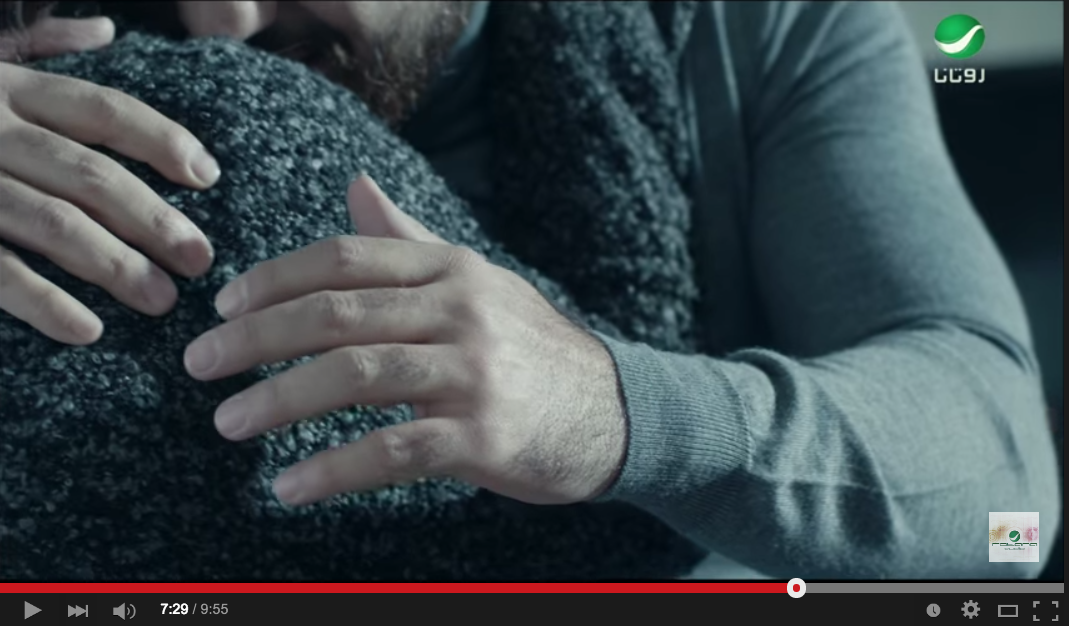 8p. ALLAHO AKBAR. Tamer regains movement in his crippled hand through the love of a good woman.
8p. ALLAHO AKBAR. Tamer regains movement in his crippled hand through the love of a good woman. 8q. Tamer plays air guitar to double check.
8q. Tamer plays air guitar to double check. 8r. Future My Love, a trained medical professional brings Tamer his guitar in order to correctly assess the extent of his regained movement. This is a standard procedure used by doctors and usually involves a guitar or bongos.
8r. Future My Love, a trained medical professional brings Tamer his guitar in order to correctly assess the extent of his regained movement. This is a standard procedure used by doctors and usually involves a guitar or bongos. 8s. Mojo.
8s. Mojo. 8t. Tamer is cured. Which is good because I was about to run out of letters.
8t. Tamer is cured. Which is good because I was about to run out of letters.